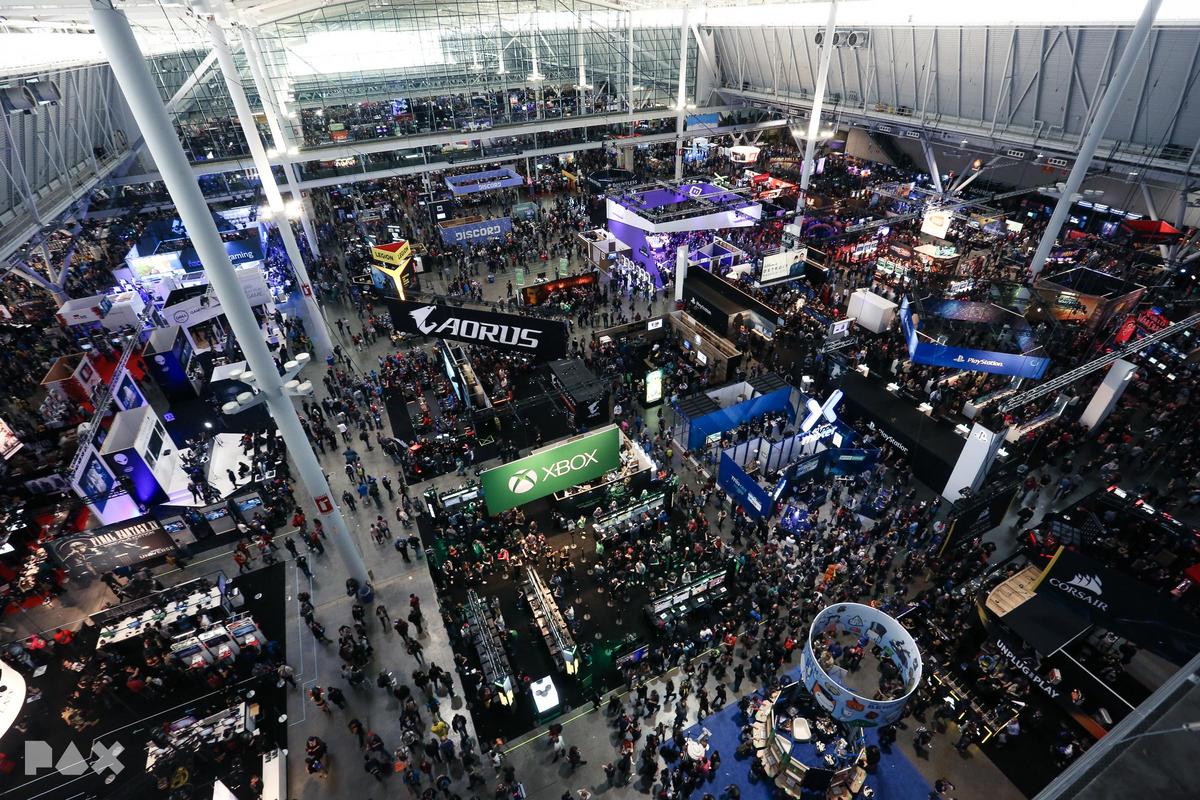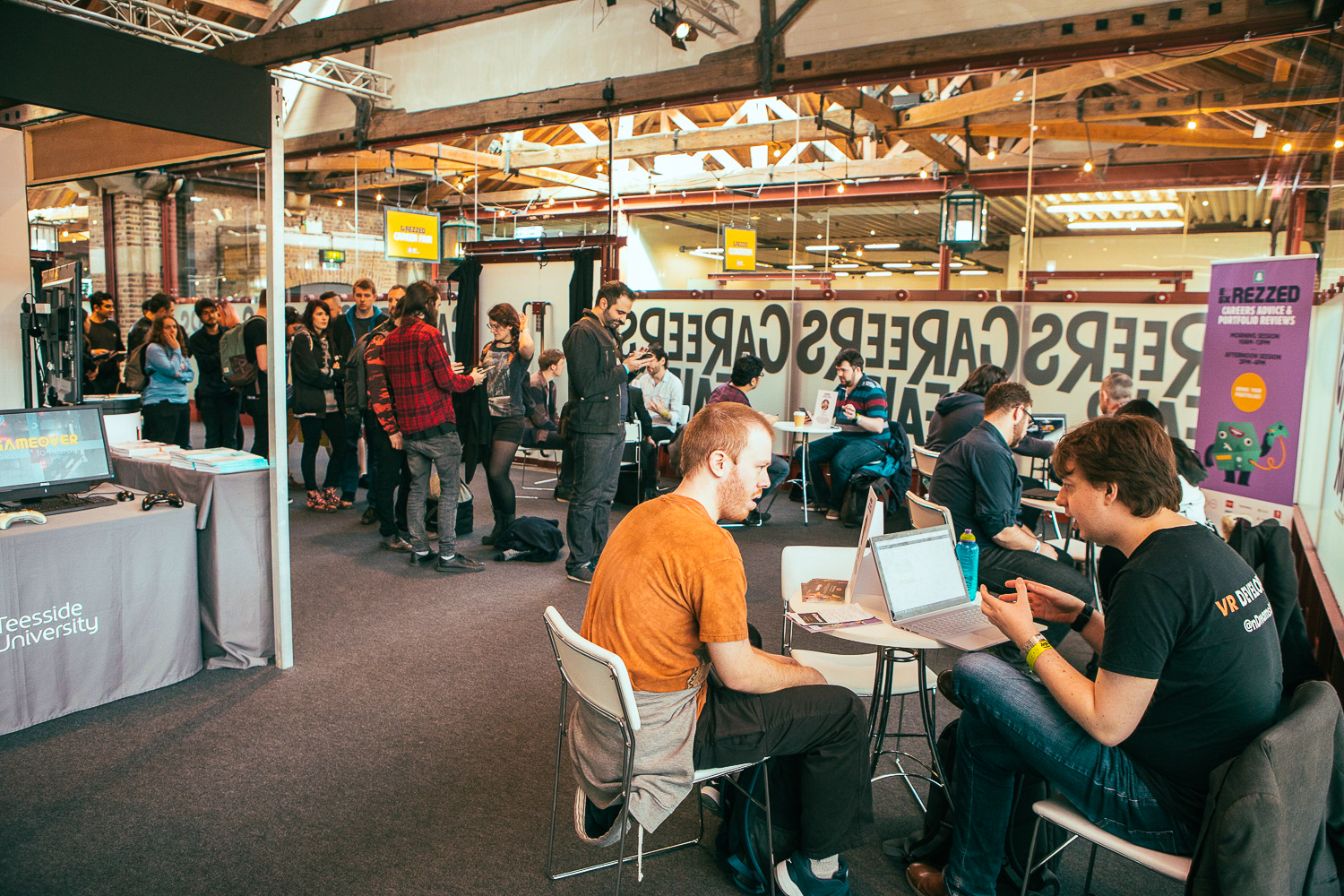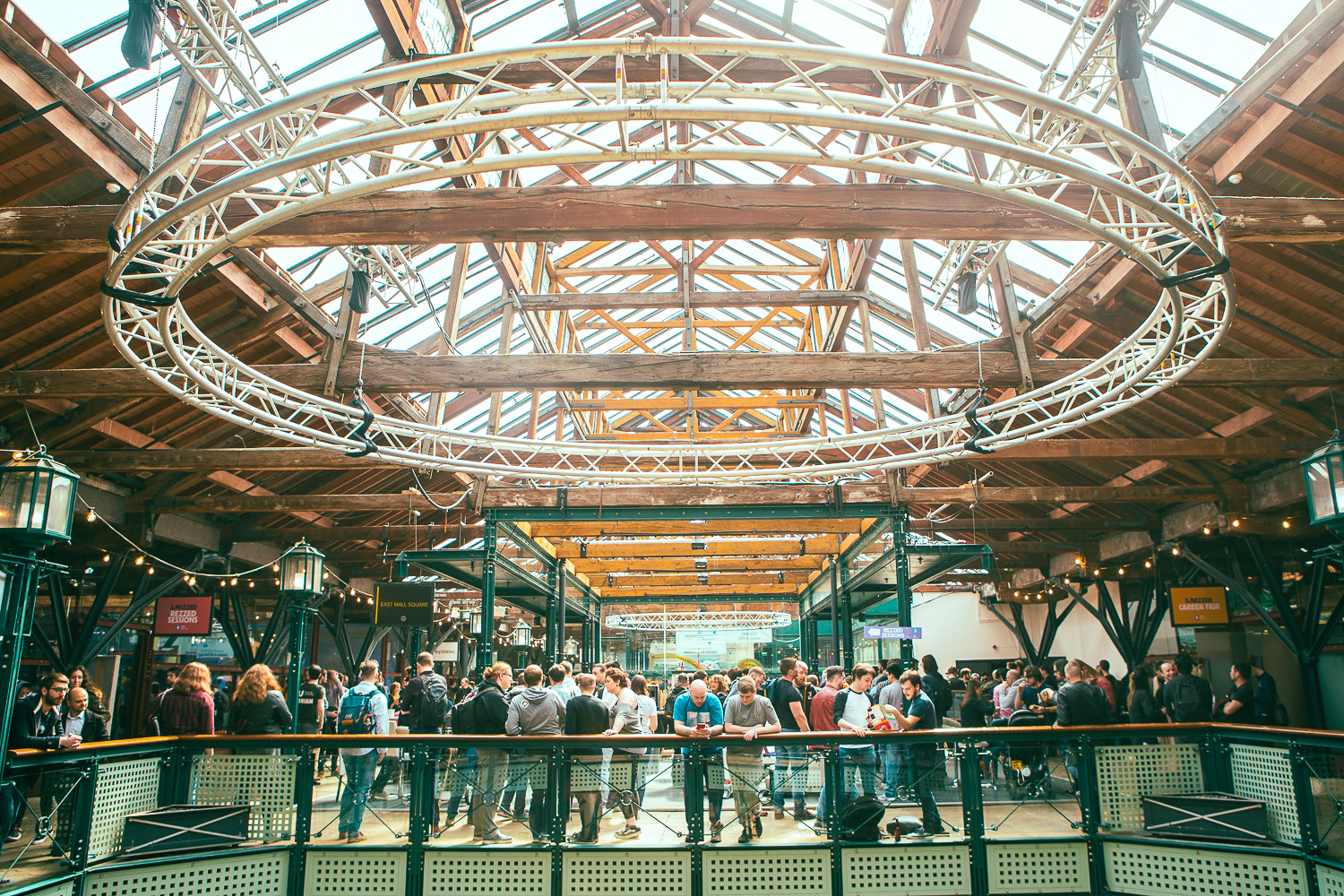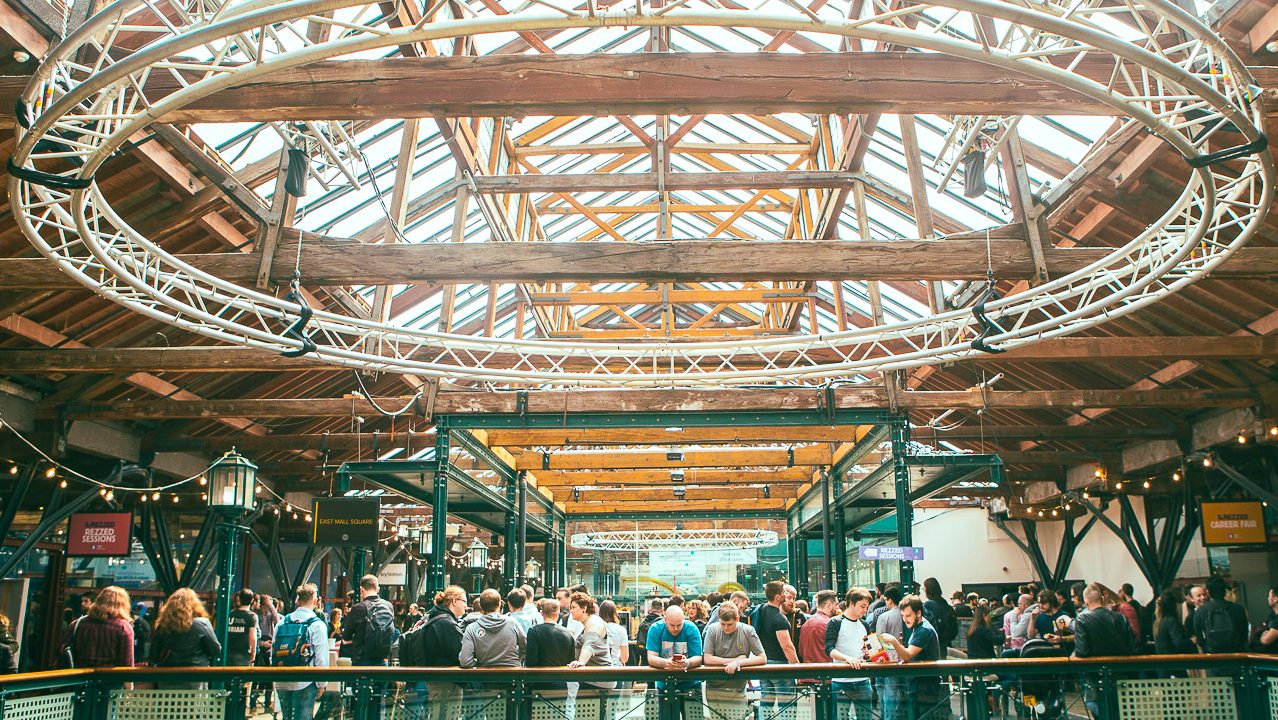An Introduction to Games Conferences
A quick guide to games conferences and their importance to indie game devs.

As you’ve probably noticed, for the past couple of months gaming news websites have been flooded with a whole heap of videos and announcements from big games industry conferences. And so, in keeping with our cutting-edge, up-to-the-minute reporting here at Indie Game Website, we thought we’d give any potential conference attendees an overview of all the amazing conferences this Spring, which you’ve just missed, and also those this Summer whose registration periods are swiftly closing.
We’re kidding of course: it’s true that there’s a bit of a Springtime cluster of big conferences, not least GDC but also the likes of EGX Rezzed and PAX East, but there are big conferences pretty much throughout the year these days, and plenty still have spaces available from Summer onwards. And so, now is the perfect time to be putting together plans to attend a conference this Autumn/Winter or even next year.
In case you’re wondering whether you’re a potential conference attendee, there’s a simple test: are you reading this article? If yes, then you’re most likely interested in the games industry (unless you happen to be this writer’s dad, who isn’t a gamer, but still prints off all my articles and reads them over dinner. Hi Dad!). And if you’re interested in game development, then you’ll definitely be interested in games conferences! Industry events bring together a whole range of people, from gamers to journalists to academic experts and industry reps. But they are most useful if you happen to be a developer, and so that will be our focus here.
Games conferences, for any Martians reading, are big events held in cities across the world, attended by all and any people involved in the games industry. They attract a lot of big names from AAA studios, and are not usually specifically geared towards indie games. But in many cases, anyone who can fork up for the price of a ticket (more on that later) can attend, and that often includes a whole lot of indie devs. Conferences usually include booths with exclusive demos of upcoming games, which are often indies. And finally, conferences feature a lot of lectures and other organised events which can be useful to indie developers.
Most importantly, though, conferences function as a way of connecting people to other people with shared interests and something to offer each other. Devs get access to other devs working in the same field (art, programming, audio, management, etc) with whom they can share expertise and develop a professional relationship. They also get to fling business cards around like shurikens in a room full of hundreds of potential employers, funders and other useful contacts. Insider tip – for higher scores when flinging, try to go for headshots: some say that if you get 10 in a row, you get an automatic publishing deal.
Speeches, presentations, panel debates on industry issues, are all good opportunities to get an insight into where the industry is going, but also to get in front of the movers and shakers in the industry and even sometimes ask them a question, which is not an opportunity to be passed up. You can also sign up to various workshops and side events which are useful for improving your skills. And in the case of big beasts like GDC, the legendary parties and social events are also a major draw for many, and not just for fun: they are another chance to rub shoulders with potential contacts.
And so, networking is the name of the game. A lot of devs spend conferences mostly ignoring the more media-friendly aspects such as demos, promotions and discussions, and simply having pre-planned meetings on the sidelines. Meetings or pitches in the conference hall, or over a meal in a nearby restaurant, are often a more productive way to spend time than playing demos, but on the other hand, demos can be a good way to get a look at the competition and get new ideas. Lectures can be informative, and they can also provide contacts, especially smaller ones where you can go and talk to the speaker afterwards.
And finally, for developers and non-developers alike, the expo section of conferences are a great way to follow your favourite games and spot some of the best upcoming new games through competitions, spotlights and booths/demos. Which of course is something you should be keeping an eye on even if you can’t attend the conference in person, via social media.
Indeed, many conferences such as E3 are essentially just big expos, which have a strong focus on gamers and the media, rather than being aimed mainly at developers like GDC. But most incorporate elements of expos and of industry events. Developer-focused conferences are often the most useful, as they provide better networking opportunities, but expos can be useful too, especially if you’re lucky enough to get a dedicated booth or demo area for your game, which is great for exposure and publicity – some conferences have highly competitive indie spotlight sections for the best indie games as judged by industry titans, but others allow you to pay for your own small booth if you have the money.
This raises the question of whether big conferences are really the best place to go for small indie developers. Many would say that despite the networking on the sidelines and the token indie representation in the indie showcase areas, big events like GDC are really geared towards big companies. Even among indie games that are present, lines can become blurred when high end ‘indie’ studios are peopled by former Triple AAA developers who started a micro-studio to pursue their own pet project. (The observant readers among you will have noticed that I did indeed just type ‘Triple AAA,’ but I’m going to go ahead and leave that in, just to annoy you.)
But conferences are still useful for small indie developers, as they allow them to keep up with major issues and developments in the industry, and pitch demos to major publishers who might not turn up to smaller indie-focused events. And they offer the chance to learn new skills and hook up with other indie devs, especially if you live in a place without much of a game development scene.

So, now we’ve dealt with what conferences are, and why you really should be going to them if you aren’t already, which conferences should you attend?
- GDC (Game Developers Conference)
GDC is to games conferences what the USA is to countries. It’s not the highest-attended event on the calendar (if you include expos) and it’s arguably not the most well-organised one, but it’s the most well-known and has a very selective entry policy so it tends to attract the best and the brightest developers.
This year it had 28,000 industry attendees, with lectures, panels, tutorials, discussions, and exhibitors on the floor. It has a reputation for displaying a lot of new technology, with VR and AR game demos, and the Alt.ctrl.gdc. event. It also incorporates the Independent Games Festival awards, which this year was won by Night in the Woods.
Where?: San Francisco
When?: March
What?: This year’s GDC included a game narrative summit (intended for both AAA and indie games), an animation bootcamp, a math course for game programmers, a community management summit (to teach studios the best tricks in maintaining “user loyalty and enthusiasm”), the Indie Megabooth Showcase, and many, many more.
- PAX (Penny Arcade Expo)
Founded in 2004, PAX is not one event but a series of annual gaming expos in various cities in the US. The original (now called PAX Prime) was in Bellevue, Washington, although Boston-based PAX East is the biggest, with not far off 100,000 attendees this year. PAX expos take place throughout the year. As PAX is an expo, it’s aimed in some ways at consumers rather than developers, but it recently introduced PAX Dev, a prelude to PAX West which is for developers only. It starts off with a keynote speech from a well-known speaker and has a range of content for indies as well as major studios.
Where?: PAX East takes place in Boston, but there are others in various US cities, as well as PAX Australia in Melbourne.
When?: Throughout the year.
What?: PAX content varies but can include concerts, panels, booths for indies and major games, LAN parties, tabletop tournaments, and freeplay areas. This year’s keynote speaker was Brendan Greene, creative director of PUBG. There is a dedicated indie game showcase, which this April at PAX East included Warhammer: Doomwheel, among others.
- EGX (Eurogamer Expo)
EGX is not American, but hails from the land of tea, crumpets, and the shocking dental hygiene that results from consuming those things. The biggest games festival in Britain has grown by a factor of 20 since its foundation in 2008, and now gets in excess of 80,000 attendees. It has grown so big in fact, that it has been split into two: the main EGX, and EGX Rezzed which took place two weeks ago. EGX Rezzed is much smaller than EGX, but it coincides with London Gaming Week and the BAFTA video game awards, so it has high prestige value.
Where?: The main festival in Autumn is held in Birmingham, UK. The Spring festival, Rezzed, is held in London.
When?: April and September.
What?: Rezzed displays playable pre-release game demos, with a focus on leftfield indie games, but also has AAA developers in attendance, as well as a careers fair. This year, it had a keynote speech by Patrik Rosander, concept artist for Vermintide 2.
- Other conferences
Nordic Games Conference, held in Malmo, Sweden in May, and GamesCom, held in Cologne, Germany in August, are two of the biggest conferences in Europe. Another one to keep your eye on is Paris Games Week, held in December. These conferences are obviously tailored somewhat more towards their home crowd, but still attract a huge international audience and attendance.
There are also various niche conferences relating to specific types of games, such as Crypto Games Conference, Kiev, which will explore the role of blockchain in present and future video games. And then there are specifically indie events, such as BitSummit, Kyoto, which is for Japanese indie game developers. In addition, there are conferences which bridge the divide between gaming and other fields, such as Games for Change in NYC, which was set up to explore the impact of games on society in education, healthcare and social issues.
- E3
And last but certainly not least, there is E3 (Electronic Entertainment Expo). E3, although not principally a developer conference, is probably the best-known event in the gaming industry calendar. It is held in LA in June and runs up tens of thousands of attendees, although recently not as many as PAX East. It is famous for big announcements from AAA studios, but it does also showcase some of the best indie games around. For example last year saw demos of Where the Water Tastes Like Wine, and Minit.

So, what do you do if you land a ticket to a conference? Well, for one thing, make sure you do your research, and can talk about current games, interesting issues and debate points in the industry. And when you actually get there, you could party all night and play demos all day, but you’ve spent a lot of money and probably have a lot to gain from a productive conference, so follow the lead of the pros and skip the lectures and panels (which are often recorded and posted online) and attend meetings and pitches. You can usually plan these ahead of time through scheduling apps, which are often provided through the conference itself.
Small-scale invite-only parties/dinners can also be a great place to corner people and talk to them, although obviously big all-night ones will just tire you out. You can always save your big blowout till the end, if you are so inclined. But more importantly, remember to hit your social media and contacts hard, and listen to others talk about their games, and talk to everyone who will listen about your game, and you won’t go far wrong. So now, hopefully, you are more educated about conferences than you were before. Whether you’re a developer or not, you may even have been persuaded to consider attending one.
My journalistic training taught me to always end on a positive note, but I’m going to ignore that and conclude with a hefty dose of harsh, bitter reality: if you’re the average indie developer, living in a dark bedsit in a horrifically expensive city with a crippling Mountain Dew habit, then you can probably forget about attending a big one: an all-access pass for GDC will cost you well over $2000, and in San Francisco hotels can be over $100 a night during conference week. That’s not even considering flight costs.
But of course, that’s GDC: many other conferences can be considerably cheaper. Take a look at your local options and remember that the investment can pay off if you make the right contacts.
Now go, plan your conference season well, and sharpen up those business cards!

